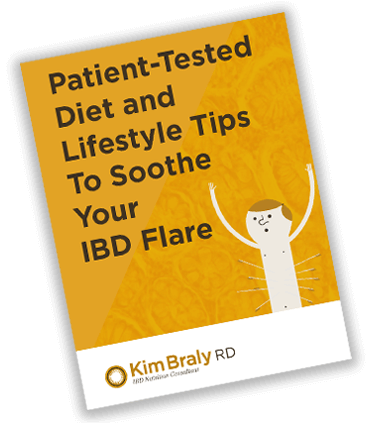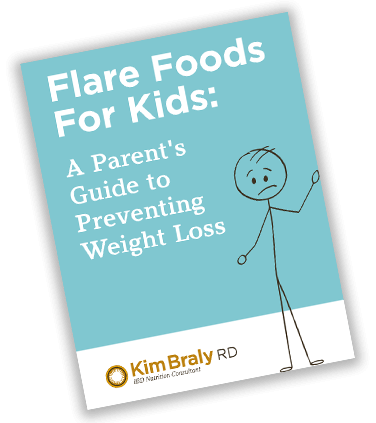Immune Supporting Foods

Food can offer us a sense of protection, wholeness, and security, a fact that is often hard to remember when it is such a routine part of daily life. We often lean on medication in the short run, but in the long run, research shows that getting the vitamins and minerals we need is what protects our bodies against internal and external threats. It can feel like a balancing act at times managing your health, what is happening in your life while trying to think of food as a foundation to your health. This post aims to simplify the nutritional approach to strengthening your body’s immune system.
“The immune system is strongly influenced by the intake of nutrients .” (1)
How can food support my immune system?
The main role of vitamins and minerals in the human body is to help balance various body functions at the cellular level (2). Healthy cells can only function properly when the right amount of vitamins and minerals are present and available to help them function.
One way to think of this is the common comparison of the human body to a car- it’ll run on any fuel, but the lifespan and quality of life of that car will be much better if you are feeding it the fuel it needs. So, what fuel does your body need to have a healthy, functioning immune system?
The intestine (what is commonly referred to as your “gut”) is an incredibly important player in a healthy immune system. Your gut is actually equipped with special immune systems and cells that play vital roles in defending against intruders that aren’t supposed to be there (2). This makes sense when you think about all the hitchhiking germs that can enter through your mouth and end up in your digestive tract.
What activates my immune system?
Immune systems can be triggered by many different things, and different individuals can have different reactions. For example, an individual with no known health conditions will probably have an immune system that responds when alerted to hazardous substances in the body (i.e. toxins or pathogens a.ka. germs). If you have an auto-immune condition, such as inflammatory bowel disease (IBD), your immune system may be out of whack and respond abnormally to the environment in your gut. This leads to inflammation and adverse symptoms.
It is sometimes hard to conceptualize the immune system as it is just that, a system. It’s easier to understand something such as heart disease because we can think of our heart (an organ) being sick. With our immune system, a way to help bring understanding can be to picture it like this:
Imagine your body is a shopping mall. Each mall has a security team in place. Your immune system is like the security team. Some security guards stay at the same station and some roam around to make sure that things are generally going as planned.
Everyone’s “mall” (body) is going to look a little different, but one thing is common among us all- we want our security system to be strong. We want to hire the strongest and most capable guys to take down threats to our well-being. In our body, the way that we do this is by building our body’s security system through the foods that we eat.
Can anything else affect my immunity?
When your health professionals take a look at your body’s immune markers (these are basically signals that tell them how well your immune system is functioning), they are hoping that they fall within certain limits. Within the range of these limits, your body is constantly fluctuating. Think back to the mall analogy- there’s always security guards roaming, but if we took a snapshot of a certain area, there might be a higher concentration of security guards at one time than there would be at another. Repeated poor lifestyle choices (i.e. smoking, sedentary activities), under nutrition, the aging process, poor stress management (both mental and physical), and a deficiency in vitamins and minerals are just a few of the factors that affect the way your immune system functions (2).
“Nutrition is a critical determinant of immune responses and malnutrition the most common cause of immunodeficiency worldwide.” (3)
Immune supporting foods
Deficiency in vitamins and minerals and/or macronutrients (protein, fat and carbohydrates) can cause your immune system to fire up, ultimately leading to unwanted effects that include cell death or delayed responses in the compromised population. In general, the compromised population includes the following:
- Individuals with immune deficiency
- Individuals with body systems weakened by acute disease or chronic health conditions
- Those with developing immune systems such as infants, toddlers, and children
- The elderly
Simply put, deficiency in vitamins and minerals can cause your health to deteriorate (2). Going back to the mall analogy, a deficiency of nutrients is like a financial cut to your security team. Reduced funds or no funds mean that you can no longer afford the same level of security.
So how can you keep your security team strong? Each of the following vitamins and minerals listed and the foods that contain them must be part of a healthy, balanced diet in order for your immune system to function optimally. The table below is a summarized version of the information, and the paragraphs following it provide more details about each nutrient.
Nutrients needed for a healthy immune system |
||
| Nutrient | Function in immunity | Foods containing this nutrient |
Energy (calories)
|
Crucial in the development of a healthy immune system | Nutrient dense foods (foods that have a high vitamin and mineral content and show up in multiple boxes below) |
| Glutamine (amino acid) | Helps form healthy immune cells; combats stress to the body cells/systems | Specific protein-containing foods such as
(4) |
| Arginine (amino acid) | Helps enhance cells that regulate immune response | Specific protein-containing foods such as
(4) |
| Omega-3 fatty acids | Combat inflammation and contribute to stimulating the immune system (5) |
(5, 6) |
| Vitamin A | Enhances immune function as an antioxidant; anti-inflammatory; development of the immune system; involved in immune responses/processes (7) |
(8) |
| Vitamin B6 | Aids in immune response (9) |
(9) |
| Vitamin C | combats stress to the body cells/systems (antioxidant) |
(10) |
| Vitamin D | Reduces inflammation (https://ods.od.nih.gov/factsheets/VitaminD-HealthProfessional/), Fights off invading germs and is found in cells throughout the body(11) |
(11) |
| Vitamin E | combats stress and inflammation in the body’s cells/systems |
(12) |
| Copper | Required by the immune system to form several functions (13) |
(14) |
| Folate (folic acid) | Required for growth, development, and cell metabolism (15) |
(16) |
| Iron | Needed to maintain a properly functioning immune system |
(17) |
| Selenium | Helps enhance cells that regulate immune response; antioxidant |
(18) |
| Zinc | Helps enhance cells that regulate immune response |
(19) |
Table adapted from (1) “Table 2: Major food-derived substances that modulate immune functions”. See resources below under “References” to access the full study and link to the resource.
“Deficiency of single nutrients also results in altered immune responses: this is observed even when the deficiency state is relatively mild. Of the micronutrients, zinc; selenium; iron; copper; vitamins A, C, E, and B-6; and folic acid have important influences on immune responses.” (3)
Energy (calories)
The activation and sustained response of the immune system during a state of infection generally increases the amount of energy consumption your body uses. This means that a calorie deficit during this time could make you more susceptible to infection. Infection can then contribute to worsened malnutrition (calorie or nutrient deficit), and you can see how the cycle can continue to weaken your immunity as a whole. In children, malnutrition can impair growth and development, as well as increase their risk for infection and disease. In small children, deficiency can even cause improper organ development (20). In essence, malnutrition decreases your body’s ability to nip threats in the bud. In the presence of malnutrition, GI function is reduced which leads to an increased susceptibility to intestinal infection (21).
“It must be remembered that infections are as much a cause of malnutrition as a consequence” (22).
Conversely, obesity and diabetes also have associated effects on immunity and infection (3,20,22). This tells us that there isn’t a perfect number of calories to aim for, but rather a balanced diet containing nutrient dense foods is critical to a harmonious immune system. Nutrient dense foods are foods that increase the amount of vitamins and minerals you ingest without increasing the amount of calories excessively.
“Both moderate and severe deficiencies are associated with significant changes in immunocompetence” (23).
Glutamine (Amino Acid) Glutamine is an important nutrient that aids in the growth of immune cells. Essentially, glutamine helps to make sure that immune cells reach their potential (24).
Arginine (Amino Acid)
In an inflammatory or infection state, the body uses arginine more quickly than it would otherwise. Increasing arginine in treatment regimens has been shown to improve immune function in the body, and shows promise for even critically ill patients (20).
Omega-3 Fatty Acids
Omega-3 fatty acids are known to reduce inflammatory response, and are also potentially therapeutic in cases of autoimmune disease. Deficiency in essential fatty acids can impact immune response (5). Nuts and seeds can be an appealing option for younger eaters who aren’t inclined to eat fish or seafood.

Vitamin A
This vitamin has anti-infection properties. The current research supports the likelihood that Vitamin A plays a vital role in a competent immune system due to its function in strengthening cells (21).
Vitamin A is included as part of the therapy process for many diseases, specifically infectious diseases. The following excerpt from a research review highlights the crucial role of vitamins, and in particular Vitamin A, in fighting some of the most common and universal health threats:
“Infectious diseases in children were once a global threat. Recent research has suggested a close correlation between a deficiency of micronutrients (particularly [Vitamin A]) and infectious diseases spread through the respiratory and digestive systems in children .” (7)
Vitamin B-6 (pyridoxine)
Vitamin B6 is needed to make immune cells and generate proper immune response (15). Vitamin B6 administered in large doses has been shown to compensate for lack of immune response, particularly in very ill patients (5, 26).
Vitamin C
Vitamin C is included as part of therapy for many different disorders. It protects the immune system, has the power to decrease the severity of an allergic reaction, and helps the body fight off infection. As a bonus benefit, Vitamin C helps to enhance the absorption of iron that comes from certain sources. This vitamin has a reputation for being a powerful player in immune function due to the fact that it helps to reverse cell damage as well as regulate the activation of the immune system (10).
Many cells in the body require Vitamin C for proper performance of their tasks. A lack of Vitamin C lowers the body’s resistance against germs, and eating adequate amounts aids in recovery from physical strain and deficiency (1).
Vitamin D
Receptors for Vitamin D are expressed on immune cells, and this nutrient plays a vital role in regulating immune activity. Deficiency has been linked to autoimmunity as well as increased risk of infection. Increasing evidence associates deficiencies with autoimmune diseases, including multiple sclerosis (MS), rheumatoid arthritis (RA), diabetes, lupus, and inflammatory bowel disease(IBD) (27).
You can check the vitamin D content of your food using the USDA National Nutrient Database for Standard Reference.
Vitamin E
Research on Vitamin E has shown that it’s antioxidant potential and ability to regulate immune function make it a powerful player in immunity, especially to those of older age (28). Sunflower oil or seeds and safflower oil can be easy additions to the diet when you are trying to increase your intake of Vitamin E.
Copper
In cases of moderate to severe copper deficiency, the number of immune cells decreases (13).
Folate (Folic Acid)
Folate is needed to help create a proper immune response(5, 15). Folate is needed for cells to properly divide (16).
Iron
Studies on iron-deficient humans have shown that these individuals also have defective immune responses. Luckily, the effects are reversible with iron therapy (21). This shows us the importance of ingesting enough iron through the diet to maintain a healthy, functioning immune system. A deficiency of iron, also called anemia, can lead to a disrupted immune response (5). Deficiency has been noted in cases of IBD, RA, Lupus, and other chronic inflammatory states (29).
Selenium
Selenium is an antioxidant, and helps to enhance immune function. Studies show that Selenium helps to increase the production of immune cells, as well as clear the virus from the human body at a quicker rate (21). This nutrient has influences in nearly all tissues, so it is not surprising that it has a hand in inflammatory and immune response (30). Deficiency of selenium, even on its own, can alter immune response (5).
Zinc
In the past, studies on children born without the ability to properly absorb zinc also showed that these children had reduced immune responses and delayed sensitivity to germs (21).
Zinc is incredible as a nutrient because it literally has a role in immune protection from our skin down to the way our genes are regulated at the cellular level. It helps to activate or deactivate certain reactions based on the needs of the body. A zinc deficiency can even be a catalyst for cellular death in some cases. It has the power to stabilize cells and enhance resistance (5,31). Zinc plays a vital role in fighting off invading germs and creating materials that cells need to grow and develop properly (19).
You can find out how much zinc content is in your food by using the USDA National Nutrient Database for Standard Reference (using the “Find” function on your keyboard and then typing in the food you want to search will help you navigate the document more quickly).
Spice up your Immune-Boosting Foods
Turmeric & Ginger
Turmeric is an herb in the ginger family (read more about it in the post here) and contains a chemical called curcumin, which has been praised for its antioxidant, anti-inflammatory, antimicrobial, anticancer properties and beyond. Both turmeric and ground ginger contain many nutrients including protein, fiber, calcium, iron, and potassium (32,33). Flavoring your foods with these spices and herbs can help to make your meals more nutrient dense.
As you can see, eating foods containing the nutrients listed above can prove to be a powerful tool in protecting you against threats to your immune system. Try incorporating more nutrient rich foods into your meals this week. Perhaps Hippocrates said it best: “Let food be thy medicine.”
REFERENCES
- Ströhle A, Hahn A. Vitamin C and immune function. Med Monatsschr Pharm. 2009; 32(2):49-54.
- Kaminogawa S, Nanno M. Modulation of Immune Functions by Foods. Evid Based Complement Alternat Med. 2004;1(3):241–250. doi:10.1093/ecam/neh042
- Chandra RK. Nutrition and the immune system:an introduction. Am J Clin Nutr. 1997; 66(2):460S-463S. doi:10.1093/ajcn/66.2.460S
- National Institutes of Health (Office of Dietary Supplements). Dietary Supplements for Exercise and Athletic Performance (Fact Sheet for Consumers). U.S. Department of Health & Human Services. Accessed at https://ods.od.nih.gov/factsheets/ExerciseAndAthleticPerformance-Consumer/.
- Institute of Medicine (US) Committee on Military Nutrition Research. Military Strategies for Sustainment of Nutrition and Immune Function in the Field. Washington (DC): National Academies Press (US); 1999(7), Nutrition and Immune Responses: What Do We Know? Available from: https://www.ncbi.nih.gov/books/NBK230970.
- National Institutes of Health (Office of Dietary Supplements). Omega-3 Fatty Acids Fact Sheet for Consumers. U.S. Department of Health & Human Services. Accessed at
- https://ods.od.nih.gov/factsheets/Omega3FattyAcids-Consumer/Huang Z, Liu Y, Qi G, Brand D, Zheng SG. Role of Vitamin A in the Immune System. J Clin Med. 2018;7(9):258. Published 2018 Sep 6. doi:10.3390/jcm7090258
- National Institutes of Health (Office of Dietary Supplements). Vitamin A Fact Sheet for Consumers. U.S. Department of Health & Human Services. Accessed at
- https://ods.od.nih.gov/factsheets/VitaminA-Consumer/National Institutes of Health (Office of Dietary Supplements). Vitamin B6 Fact Sheet for Consumers. U.S. Department of Health & Human Services. Accessed at
- https://ods.od.nih.gov/factsheets/VitaminB6-Consumer/Chambial S, Dwivedi S, Shukla KK, John PJ, Sharma P. Vitamin C in disease prevention and cure: an overview. Indian J Clin Biochem. 2013;28(4):314–328. doi:10.1007/s12291-013-0375-3
- National Institutes of Health (Office of Dietary Supplements). Vitamin D Fact Sheet for Consumers. U.S. Department of Health & Human Services. Accessed at https://ods.od.nih.gov/factsheets/VitaminD-Consumer/.
- National Institutes of Health (Office of Dietary Supplements). Vitamin E Fact Sheet for Consumers. U.S. Department of Health & Human Services. Accessed at https://ods.od.nih.gov/factsheets/VitaminE-Consumer/.
- Percival SS. Copper and immunity. Am J Clin Nutr. 1998;67(5):1064S-1068S. doi: 10.1093/ajcn/67.5.1064S.
- National Institutes of Health (Office of Dietary Supplements). Copper Fact Sheet for Consumers. U.S. Department of Health & Human Services. Accessed at https://ods.od.nih.gov/factsheets/Copper-Consumer/.
- Gombart AF, Pierre A, Maggini S. A Review of Micronutrients and the Immune-System-Working in Harmony to Reduce the Risk of Infection. Nutrients. 2020;12(1):236.
- National Institutes of Health (Office of Dietary Supplements). Folate Fact Sheet for Consumers. U.S. Department of Health & Human Services. Accessed at https://ods.od.nih.gov/factsheets/Folate-HealthProfessional/.
- National Institutes of Health (Office of Dietary Supplements). Iron Fact Sheet for Consumers. U.S. Department of Health & Human Services. Accessed at
- https://ods.od.nih.gov/factsheets/Iron-Consumer/National Institutes of Health (Office of Dietary Supplements). Selenium Fact Sheet for Consumers. U.S. Department of Health & Human Services. Accessed at
- https://ods.od.nih.gov/factsheets/Selenium-Consumer/National Institutes of Health (Office of Dietary Supplements). Zinc Fact Sheet for Consumers. U.S. Department of Health & Human Services. Accessed at https://ods.od.nih.gov/factsheets/Zinc-Consumer/.
- Schaible UE, Kaufmann SH. Malnutrition and infection: complex mechanisms and global impacts. PLoS Med. 2007;4(5):e115. doi:10.1371/journal.pmed.0040115
- Hughes S, Kelly P. Interactions of malnutrition and immune impairment, with specific reference to immunity against parasites. Parasite Immunol. 2006;28(11):577–588. doi:10.1111/j.1365-3024.2006.00897.
- Changra S, Chandra RK. Nutrition, immune response, and outcome. Prog Food Nutr Sci. 1986;10(1-2):1-65.
- McMurry DN. Cell mediated immunity in nutritional deficiency. Prog Food Nutr Sci. 1984;8(3-4):193-228.
- Shah AM, Wang Z, Ma J. Glutamine Metabolism and Its Role in Immunity, a Comprehensive Review. Animals (Basel). 2020 Feb 19;10(2). pii: E326. doi:10.3390/ani10020326.
- Shah AM, Wang Z, Ma J. Glutamine Metabolism and Its Role in Immunity, a Comprehensive Review. Animals (Basel). 2020 Feb 19;10(2). pii: E326. doi:10.3390/ani10020326.
- Cheng CH, Chang SJ, Lee BJ, Lin KL, Huang YC. Vitamin B6 supplementation increases immune responses in critically ill patients. Eur J Clin Nutr. 2006;60(10):1207-13. doi: 10.1038/sj.ejcn.1602439
- Aranow C. Vitamin D and the immune system. J Investig Med. 2011;59(6):881–886. doi:10.2310/JIM.0b013e31821b8755
- Moriguchi S, Muraga M. Vitamin E and immunity. Vitam Horm. 2000;59:305-36. doi:
- 10.1016/s0083-6729(00)59011-6Cherayil CJ. Iron and immunity immunological consequences of iron deficiency and overload. Arch Immunol Ther Exp (Warsz). 2010; 58(6):507-515
- Hoffmann PR, Berry MJ. The influence of selenium on immune responses. Mol Nutr Food Res. 2008;52(11):1273–1280. doi:10.1002/mnfr.200700330
- Shankar AH, Prasad AS. Zinc and immune function: the biological basis of altered resistance to infection. Am J Clin Nutr. 1998 Aug;68(2 Suppl):447S-463S. doi: 10.1093/ajcn/68.2.447S.
- Nutritionvalue.org. Spices, ground, turmeric. Nutrition facts. Accessed at https://www.nutritionvalue.org/Spices%2C_ground%2C_turmeric_nutritional_value.htmlNutritionvalue.org. Spices, ground, ginger.
- Nutrition facts. Accessed at https://www.nutritionvalue.org/Spices%2C_ground%2C_ginger_nutritional_value.html

Hi! I'm Kim Braly, RD, a clinical researcher and IBD Nutrition Consultant. I specialize in cutting-edge dietary therapies for inflammatory bowel disease that have been shown in multicenter trials to decrease inflammation, alleviate IBD symptoms and induce remission. I'm passionate about offering this effective new option to patients and their families with my 3D-Dietary™ Approach for IBD and helping to usher in a new era of IBD treatment through mentoring and research trial consultation. Let's see what diet can do for you.
ABOUT
FOR PATIENTS

Flares Happen!
You can't always put your life on hold when IBD rears its head, but you can make this your easiest flare yet. My proven diet and lifestyle tips support your gut, body, mind & emotions for a faster recovery and a longer remission.
FOR PARENTS

Is Your Child’s Weight Dropping Fast?
You don't have to stand helpless during an IBD flare. Feed your child foods proven to minimize triggers, calm inflammation, and repair the gut. Get them healing and growing!









